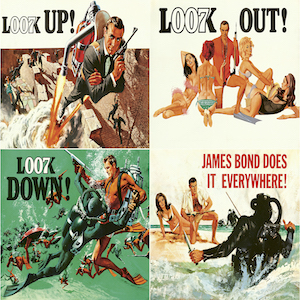One Day A Forest
By Brindley Hallam-Dennis
Words BHD image Eddy Thormann. We’ve been at the services for three generations now. I will be the last, I think. The great open space spreads out beyond the pools of light from the arc lamps. There were more of them once, but the far corners of the forecourt are no longer needed and stay in shadow.
It was always a fuel stop. Fuel for the travellers: fuel for their vehicles. The vehicles have changed. The fuel is different now, cleaner some would say, though that’s a matter of measurement, but the travellers are the same.
Sometimes I wonder why we are there. You could train a monkey to do the job, and that was always true. Galliard says that you would not be allowed to use a monkey these days, and that is probably true too. You could build a machine to carry out the tasks. They have built a machine if the truth be told. We are just the monkeys that dance, chained to it.
There is something about a human though that cannot be replaced. Perhaps it is the smell, or the unpredictability. Perhaps it is because we trust them.
I didn’t do well at school. They’d given up trying to get me to try me before I even realised I needed to. That’s why I’m working here. Galliard calls me The Professor though. That’s because he pays too much attention to what I do on the far side of the forecourt. He doesn’t know what it is I do. That’s because he doesn’t pay enough attention.
We work together through the nights, Galliard and I. Nobody moves during the daylight. He brings in a bag of books, and in between customers we sit and listen to them in our minds. I have a real book at home, a printed book, made out of paper and pasteboard and gathered together into a single piece. You have to read it with your eyes in the old fashioned way, one page at a time. Galliard doesn’t know about that. Nobody knows. Nobody that is except the customer who called the night I’m telling you about.
The air was mild and still. It was a no air sort of night. You could have stood out in your skin that night and felt neither cold nor hot. I guess you would have still felt the itching off the air though, and neither of us did stand out in our skins. But if we had it would have been blood heat temperature, that air. Not hot. Not cold. The air wasn’t always this still they say. When there was more of it, it moved about and caught you like a sail, pulling, pushing. I can’t imagine really. Maybe it was like a little puff of breath, or like a great candle blowing out rush.
I’d gone out onto the forecourt. Galliard was watching me from the control. He always watched me, but he’d never come out. I would have shown him I think, if he had ever come out.
I was out beyond the light of the arc lamps, where you can see the stars and the moon, but I wasn’t looking at them. I was on my knees down where the tarmac breaks and finishes. I’d loosened the face-mask. Not many people know you can do that, but you can, close to the ground. That’s where the air has gone, or is it that that’s where the air has hung on longest? Either way, if you get down low enough, like where I was, where the tarmac finally broke up and there was a gully, wide as shoulders, deep as knees, you could put your head into it, and loosen the face-mask, and breathe.
Things were growing down there: plants. Not big luscious forest plants like they tell you about in the stories. These were real plants: tiny, soft, moist as fresh rolls. You could stroke them with your fingertips. They were mosses. I only knew that because of the book, the real book that I told you about.
I’d found them before I got the book of course. It was just that I didn’t know what they were called. Galliard wasn’t the only one who was watching that night.
“What’s that boy doing out there?” The man asked him. So Galliard told me later.
“He’s looking at holes.” Galliard said.
“What sort of holes?”
“I don’t know. I’ve never seen them.”
Then the man came out too.
He nearly frightened the life out of me, coming up on me in the dark like that when I was lying flat out with the mask off.
“What are you looking at boy?” he asked, standing right beside me.
I moved so fast I came up without the mask on and took a great big gasp of no air. It was like having your face in a plastic bag and sucking in. There was just nothing. Then this big pain in my chest, and he was lifting the mask back up to my face, and holding it on while my head went spinning.

“Hell boy! Are you trying to kill yourself!” he said.
Then he looked down into the hole, and there must have been a splinter of light got in there from somewhere, because he could see the mosses. He gave a long whistle and dropped down on one knee.
“You got plants in here.” He said.
I didn’t say anything. I was thinking what’s he going to do now? Is he going to tell on me? Who might he tell? And what would they do? Should I try to stop him?
Then I saw he was loosening his own mask and bending right over like I did, and I knew everything would be OK.
“Sweet Mother Earth.” He said quietly. “You can nearly breathe in here.”
“It’s better if you lie down.” I said.
After that he gave me the real book.
“Just a loan son.” He said. “You’ll have to pass it on, when the time comes.”
“You’ll know.” He said, when I asked him.
The days are bright they say, and hot. Too bright and hot for us to see. Those of us who are bright enough to do the jobs that monkeys could be trained to do must work at night-time. I like to be outside. I like to meet people. The years roll by, and the traffic at the services gets less and less. We are on a route that has had its day. We are a backwater, whatever that means. Galliard and I will be kept on. They may as well pay to keep us here, listening to our story-books. They would have to find something else for us somewhere.
The mosses grow. They flower. They die. They harvest the rock for its minerals, molecule by molecule, ion by ion. They fill the crevices of the rock with their detritus. They spread. They colonise. Beneath them they bequeath a layer of something for which I have a word that Galliard does not know.
One day a forest here will grow.
When Galliard told me there had been a man looking for me I knew it was the time.
“He said he’s coming back in a few days.” Galliard said. “Are you in some sort of trouble?”
I brought the book in, and kept it hidden in my locker. It was too big for one of the storybook cases, but I wrapped it in a spare robe.
“I’ve got something for you.” The man said.
“Me too.” I gave him the book, but there was something more he wanted.
“Can I see?”
I took him out to the far edge of the forecourt and let him look down into the hole.
“You can just about breathe with your mask off if you get low enough down.” I told him.
“You’re kidding!”
I showed him how, and he sprawled next to me on the tarmac, taking deep breaths in through his nose.
“Sweet Mother.” He said, and I could see his eyes glistening.
He rolled onto his side, squashing the mask back over his face.
“You’ve got the best site I’ve ever seen.” He said.
Then he fumbled in his robe a moment and brought out something cupped in his palm.
“He sent you this.” He said, opening his hand.
A ball of dark green moss opened like a sponge, and there, entwined with it, a rooted leaf, saw edged and bright green.
“Fern.” He said. “That’s what you call it.”
He passed it over gently and I took it.
“The next step.” He said, “if it takes.”
posted online in ‘Boccaccio Project’ during the first 2020 lockdown and then published in the subsequent paperback collection ‘Previously – 100 earlier tales by BHD



